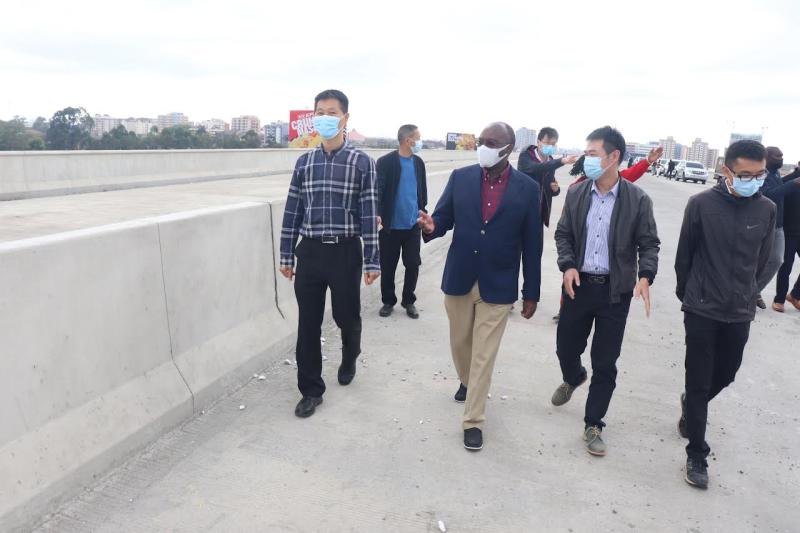×
The Standard e-Paper
Fearless, Trusted News

Transport CS James Macharia (second left) alongside Chinese road contractors during an inspection tour of Nairobi Expressway, on Sunday, October 31, 2021. [David Njaaga, Standard]
In a recent interview, Cabinet Secretary for Transport, Infrastructure, Housing and Urban Development James Macharia, disclosed that the Nairobi Expressway idea was born in a dinner meeting.